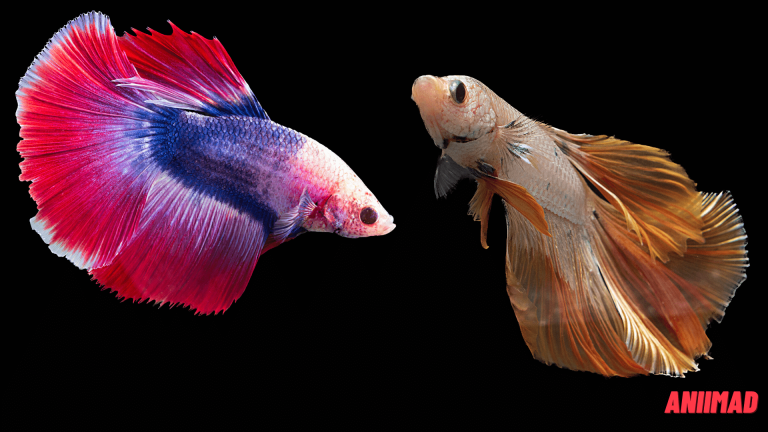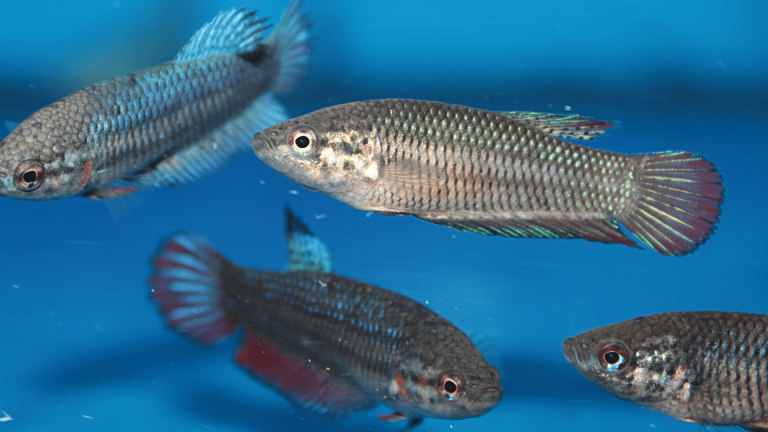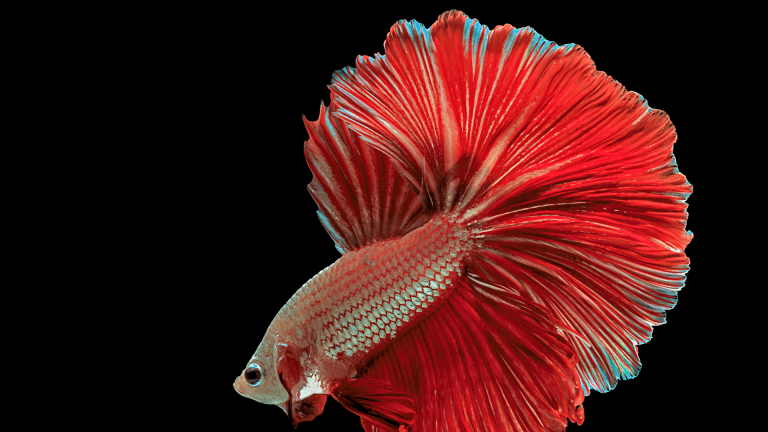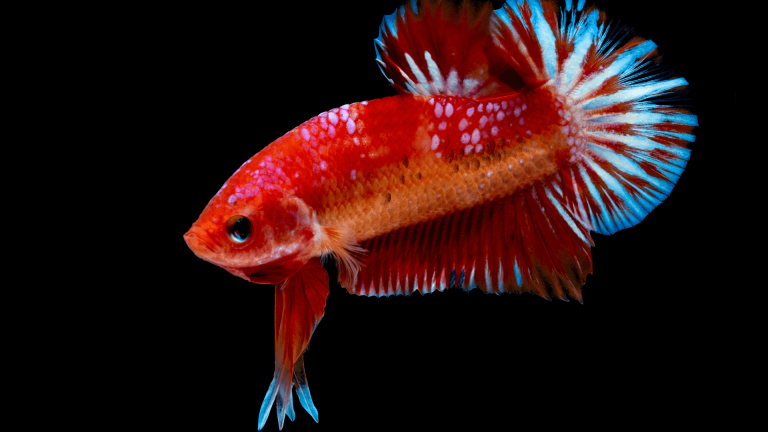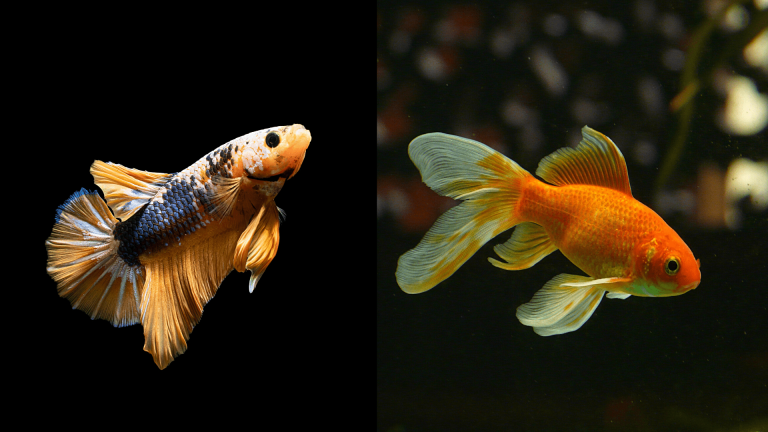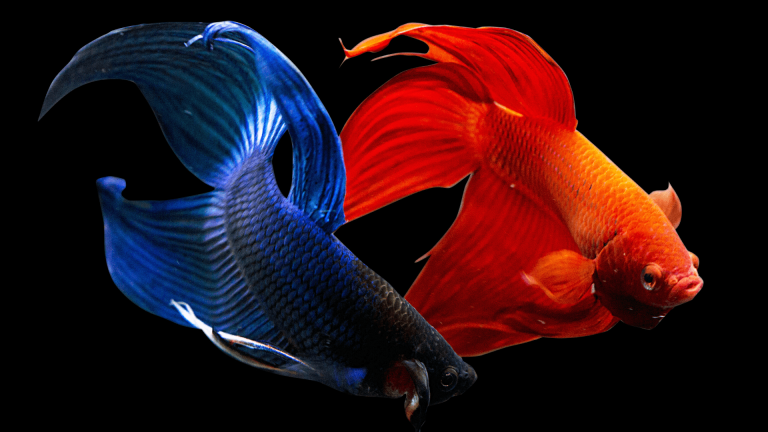Rosetail Betta Fish – A Comprehensive Guide
Contents
- 1 What is a Rosetail Betta Fish?
- 2 How to Take Care of Rosetail Betta Fish
- 3 Are Rosetail Betta Fish Good Tank Mates?
- 4 Are Rosetail Betta Fish Rotten?
- 5 Frequently Asked Questions (FAQs) About Rosetail Betta Fish
- 5.1 What is the difference between a Rosetail betta and other betta variations?
- 5.2 Can I keep Rosetail betta fish together in the same tank?
- 5.3 How long do Rosetail betta fish live?
- 5.4 Can Rosetail betta fish breed?
- 5.5 Are Rosetail betta fish more prone to fin damage?
- 5.6 What kind of tank setup is suitable for Rosetail betta fish?
- 5.7 What should I feed my Rosetail betta fish?
- 5.8 Can I keep Rosetail betta fish in a community tank?
- 6 Conclusion | Rosetail Betta Fish
Discover the captivating world of Rosetail Betta Fish and learn how to care for these mesmerizing aquatic pets. Dive into the fascinating details and tips for keeping Rosetail Betta Fish healthy and happy.
Rosetail betta fish, also known as feather tail or half-moon bettas, are a captivating breed of ornamental fish that have gained immense popularity among aquarists. With their flowing, delicate fins and vibrant colors, Rosetail bettas are a sight to behold. This article will explore the mesmerizing world of Rosetail betta fish, including their origins, care requirements, and tips for keeping them healthy and happy in your aquarium.
What is a Rosetail Betta Fish?

A Rosetail betta, a Feather Tail, or Half-Moon betta, is a specific variation of the Betta splendens species. It characterizes by its exceptionally long and elaborate tail fins, which resemble the petals of a rose. The term “Rosetail” is derived from the ruffled appearance of their tails, resembling the layers of a blooming flower.
Selective breeding programs aimed at enhancing the tail finnage led to the development of Rosetail bettas. Breeders selectively bred bettas with more prolonged and extended tail rays, resulting in the distinctive feathery and flowing fins in Rosetail bettas.
The caudal fin of a Rosetail betta spreads out beautifully, forming a semi-circular shape resembling a half-moon when flared. The rays of their tail fins are elongated and often overlap, creating a layered and fringed appearance.
Rosetail bettas come in various vibrant colors, including red, blue, green, and metallic hues. Their stunning fins and vibrant colors make them highly sought after by betta enthusiasts and aquarium hobbyists.
It is important to note that the extravagant finnage of Rosetail bettas can make them more prone to fin damage and specific health issues, such as fin rot. Therefore, providing a suitable environment with pristine water and adequate space is crucial for their well-being.
How to Take Care of Rosetail Betta Fish

Taking care of Rosetail betta fish requires a suitable environment, proper nutrition, and regular maintenance. Here are some essential care guidelines to ensure the well-being of your Rosetail bettas.
1. Aquarium Setup
- Tank Size: Provide a spacious aquarium with a minimum capacity of 5 gallons. Larger tanks are preferable as they offer more swimming space and provide a stable environment.
- Filtration: A gentle filtration system maintains water quality and removes toxins. Bettas prefer still or slow-moving water, so adjust the flow to avoid excessive agitation.
- Heating: Install a reliable aquarium heater to maintain a stable water temperature between 76°F and 82°F (24°C to 28°C). Sudden temperature fluctuations can stress bettas and compromise their health.
- Substrate and Decor: Use a soft substrate to prevent damage to the delicate fins. Provide hiding spots, live or artificial plants, and smooth decorations to create a stimulating and secure environment.
2. Water Parameters
- Temperature: Keep the water temperature within the recommended range of 76°F to 82°F (24°C to 28°C). Use a reliable aquarium thermometer to monitor and adjust the heater accordingly.
- pH Level: Aim for a slightly acidic to neutral pH range of 6.5 to 7.0.
- Water Quality: Conduct regular water changes of approximately 25% to 50% weekly to maintain good water quality. Use a de-chlorinator to remove chlorine and other dangerous compounds from tap water.
3. Feeding
- High-Quality Betta Food: Provide a balanced diet of high-quality betta pellets or flakes as the primary food source. Look for pellets formulated for bettas to ensure they receive proper nutrition.
- Variety: Add occasional treats like frozen or live items like bloodworms, brine shrimp, or daphnia to their diet. It provides essential nutrients and adds variety to their diet.
- Feeding Schedule: Feed your Rosetail bettas small portions twice a day. Offer an amount they can consume within two to three minutes to avoid overfeeding, which can lead to obesity and other health issues.
4. Maintenance and Health Care
- Regular Monitoring: Observe your bettas daily to ensure they are active, eating well, and exhibiting normal behavior.
- Water Changes: Perform regular water changes to maintain optimal water quality and prevent the buildup of harmful substances. Clean the tank decorations and remove any uneaten food or debris.
- Disease Prevention: Maintain good water quality, a balanced diet, and avoid sudden temperature fluctuations to prevent stress-related diseases. Before adding additional fish to the main tank, quarantine them to stop spreading dangerous diseases.
- Disease Treatment: Consult a veterinarian skilled in fish care if you observe any sickness symptoms, such as lack of appetite, sluggishness, or changes in appearance. The veterinarian can make a diagnosis and suggest the best course of action.
Remember, each betta fish is unique, so monitoring their behavior and adjusting care is essential. By providing a suitable environment, proper nutrition, and attentive care, you can ensure the well-being and longevity of your Rosetail betta fish.
Are Rosetail Betta Fish Good Tank Mates?

Rosetail betta fish are generally not recommended to be kept with tank mates, especially those with fin-nipping tendencies or aggressive behaviors. While bettas can coexist peacefully with certain species, it’s essential to consider the individual temperament of your Betta and its compatibility with potential tank mates.
Here are some points to consider when choosing tank mates for Rosetail betta fish
Aggression and Territoriality
Male bettas, including Rosetail bettas, are known for their territorial behavior. They tend to display aggression towards other fish, particularly those with long, flowing fins or bright colors that they may perceive as rivals. They may also become territorial towards other males of their species. Female bettas can also be aggressive toward each other, especially in confined spaces.
Fin Nipping
Rosetail bettas have long and elaborate fins that are more susceptible to damage from fin-nipping tank mates. Fast-moving or aggressive fish, such as some tetras or barbs, may nip at the delicate fins of Rosetail bettas, causing stress, injury, or infection.
Tank Size and Space
Providing ample swimming space and hiding spots for each fish is crucial. If you choose to keep tank mates with your Rosetail betta, ensure the aquarium is large enough to accommodate multiple fish comfortably and has plenty of hiding places to reduce stress and territorial disputes.
Compatible Tank Mates
If you decide to introduce tank mates, consider peaceful, non-aggressive species that prefer similar water conditions as bettas. Some suitable options include small, friendly community fish such as small tetras (neon tetras or ember tetras), dwarf gouramis, rasboras, or small Corydoras catfish. Snails and peaceful shrimp varieties, such as cherry or Amano, can also coexist with Rosetail bettas.
Remember to closely monitor the behavior of all the fish in your aquarium. Separating the incompatible tank mates is crucial to prevent injuries or stress if aggression or fin-nipping occurs. Every betta fish has a unique personality, so their temperament may vary, and it’s vital to assess their compatibility on a case-by-case basis.
Always research the specific care requirements and temperaments of potential tank mates before introducing them to ensure the well-being and harmony of your aquarium inhabitants.
Are Rosetail Betta Fish Rotten?

Rosetail betta fish are not inherently evil. They are a unique and visually striking variation of the Betta splendens species. However, there are a few considerations to keep in mind when it comes to Rosetail bettas:
The fragility of Fins
Rosetail bettas have long and elaborate fins, which can be more delicate and prone to damage than other betta variations. Their intricate finnage requires careful maintenance and consideration to prevent fin tearing or rot. It’s essential to provide them with a suitable environment and avoid placing them with tank mates that may nip at their fins.
Limited Swimming Ability
Due to their extensive finnage, Rosetail bettas may experience some limitations in their swimming abilities. The extra weight and size of their fins can make it more challenging for them to maneuver through the water compared to bettas with shorter fins. Providing ample space and minimizing water flow in the aquarium can help accommodate their swimming needs.
Health Concerns
The exaggerated finnage of Rosetail bettas can make them more susceptible to fin-related health issues, such as fin rot or fin collapse. Maintaining excellent water quality, a balanced diet, and monitoring their fins regularly for any signs of damage or infection are essential.
Despite these considerations, many betta enthusiasts appreciate the beauty and elegance of Rosetail bettas. Rosetail bettas can grow and bring happiness to their owners with the proper care and attention to their individual needs. Researching their care requirements thoroughly and preparing to meet their unique needs is crucial to ensure their well-being.
Frequently Asked Questions (FAQs) About Rosetail Betta Fish
What is the difference between a Rosetail betta and other betta variations?
The main difference is in their finnage. Rosetail bettas have exceptionally long and elaborate tail fins that resemble the petals of a rose.
Can I keep Rosetail betta fish together in the same tank?
Keeping multiple male Rosetail bettas together is generally not recommended as they can display aggressive behavior and fight, leading to injury or death. However, keeping a single male Rosetail betta with compatible tank mates, such as peaceful community fish or snails/shrimp, is possible if careful observation and proper tank setup are maintained.
How long do Rosetail betta fish live?
With proper care, Rosetail bettas can live for an average of 2 to 4 years, although some individuals may live longer. Factors such as genetics, environment, diet, and overall health play a role in determining their lifespan.
Can Rosetail betta fish breed?
Yes, Rosetail bettas can breed. However, breeding them can be more challenging due to their extensive finnage, which may impede movement and successful mating. Careful selection of breeding pairs and attention to the health and condition of the fish is crucial for successful breeding.
Are Rosetail betta fish more prone to fin damage?
Due to their intricate and elaborate fins, Rosetail bettas are more susceptible to fin damage than other betta variations. It’s essential to provide them with a suitable environment that minimizes the fin-tearing risk and avoids tank mates that may nip at their fins.
What kind of tank setup is suitable for Rosetail betta fish?
Rosetail bettas require a tank of at least 5 gallons or larger to provide ample swimming space. A filtered and heated tank is necessary to maintain stable water conditions. Smooth substrate, live or artificial plants, and hiding spots should provide. Minimizing strong water flow to prevent excessive stress on their delicate fins is also essential.
What should I feed my Rosetail betta fish?
A balanced diet of high-quality betta pellets or flakes should serve as the primary food source for Rosetail bettas. To add diversity and vital elements to their diet, supplement it occasionally with frozen or live meals like bloodworms, brine shrimp, or daphnia.
Can I keep Rosetail betta fish in a community tank?
Rosetail bettas can keep in a community tank with compatible, non-aggressive species. Small peaceful fish such as tetras, rasboras, dwarf gouramis, or particular catfish can coexist with Rosetail bettas. However, careful observation and consideration should ensure that tank mates do not nip at their delicate fins or provoke aggression.
Conclusion | Rosetail Betta Fish
In conclusion, Rosetail betta fish are captivating and visually stunning creatures that can add a touch of elegance and beauty to any aquarium. Their elongated and ruffled fins, resembling the petals of a rose, make them stand out among other betta variations. While they require special care due to their delicate fins, providing a suitable environment, proper nutrition, and regular maintenance can help them thrive.
It’s essential to consider their unique needs, such as the potential for fin damage and the risk of aggression when caring for Rosetail Bettas. Proper tank setup, compatible tank mates (if chosen), and attentive monitoring are vital to ensuring their well-being.
If you appreciate the exquisite beauty and are willing to dedicate the time and effort to their care, Rosetail Bettas can make beautiful additions to your aquarium. Their elegance and grace will captivate fish enthusiasts and bring joy to their owners.

